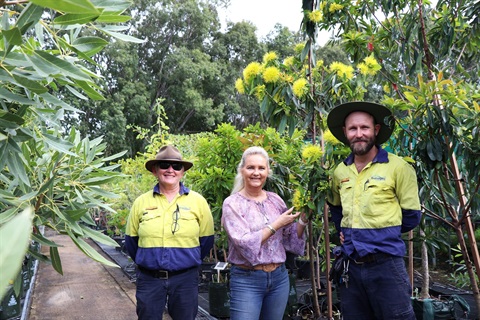Good morning everyone, thank you for being here and welcome to Parliament House.
I would like to first of all acknowledge the traditional owners of the land on which we meet, and pay my respects to their elders past and present.
I also want to recognise my friend and colleague Senator Zed Seselja, who is our Assistant Minister for Finance, Charities and Electoral Matters. He is also, of course, the co-Chair of the Parliamentary Friends of Adoption – and I know that this issue has been a passion of his for a very long time, so thank you Zed for joining us today.
Interest in this matter extends across all sides of politics, and I will note that we have Senator Kimberley Kitching in attendance, in her capacity as the fellow co-Chair of the Parliamentary Friends of Adoption. We really appreciate you, Kimberley, for being here too.
Indeed, it’s wonderful to see so many MPs who have made it along. It’s really encouraging to have such unity on display.
I also want to commend Lanai for the terrific work that she does as a media ambassador for Adopt Change.
And can I finally mention Renee Carter and the Board of Adopt Change, thank you for hosting my senior
Minister, Anne Ruston and I in Melbourne a couple of weeks ago for the National Permanency Conference, which was once again a great success. Your organisation, Adopt Change, continues to make an important contribution to our nation’s understanding of issues affecting children, and especially as they relate to adoption and permanency.
It’s a distressing fact that we currently have 45,800 Australian children in out-of-home care, and of this figure, nearly 32,000 have been in care for two years or more. Finding ways to achieve stability for these children is absolutely crucial, and it’s a big focus of mine as the Assistant Minister for Children and Families.
The report being launched this morning – Belonging in Two Families – is the latest in a series of Adopt Change research reports which have helped draw attention to a fundamental need for children, not just here in Australia but the world over.
That is, the need for secure environments in which children can be safe, grow and thrive.
This latest research looks at stakeholder views and opinions about the different types of legal orders for caring for children in out-of-home care, as they apply both in Australia and in other countries.
It is important to note that adoption is a matter mainly for state and territory Governments, but I am proud that the Morrison Government is helping to facilitate discussions between all jurisdictions, to ensure that the best interest of a child is always paramount in any decision about adoption.
At the federal level, we join with our state and territory colleagues in recognising that permanency for children in out-of-home care is an issue of national significance.
Of interest in this research report is the consideration of a form of adoption known as simple open adoption, which is practised by countries such as France and Belgium.
This form of adoption allows children to remain legally a part of their family of origin when they are adopted, while forming a new legal relationship with their adoptive family. The end result is that both the birth parents and adoptive parents maintain a legal relationship with the child.
This is distinct from the current plenary form of open adoption that we have in Australia, which replaces the legal relationship between a child and their birth family, with a legal relationship between a child and their adoptive parents.
I have no doubt that this issue will generate much discussion, and the Government welcomes this conversation.
Another central issue identified in this report is the status of birth certificates.
As many of you would be aware, the Parliamentary Inquiry into Local Adoption recommended the use of integrated birth certificates, which adds adoptive parents to existing birth certificates, rather than creating a new one that replaces birth parents with adoptive parents.
I understand that all states and territories are considering this, although there is still work to be done to address the extent to which legal relationships between children and their birth parents can be retained through integrated birth certificates.
After all, these are complex issues with huge ramifications for all involved.
I look forward to considering this new report in more detail, and discussing its findings further with my state and territory colleagues.
As I’ve said frequently, whatever we do, the wellbeing of the child must always be paramount when it comes to adoption and achieving permanency.
On that note, I will conclude by saying that the stories told by adoptees themselves in Adopt Change’s current Yesvember campaign have a strong message for all of us. And this very clear theme is how important it has been for them to feel safe, and to feel loved.
These are the fundamental needs of children everywhere.
Our primary purpose must always be to meet a child’s need to feel secure and loved, with a sense of belonging.
So congratulations Renee and the team on your work, thank you for your latest report, and on behalf of the Federal Government I look forward to continuing to work in partnership with you to ensure that our nation’s most vulnerable children have the right to belong in a safe, loving and permanent home.
Thank you very much.








